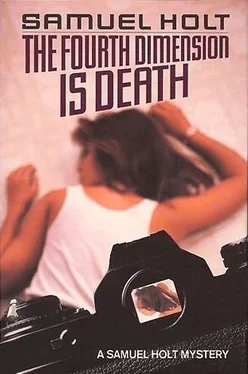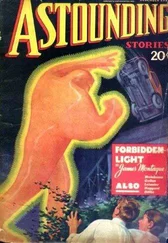Lacroix was going on, saying, “Matty got the bug, he pestered the movie people, and somebody gave him an introduction to one of the casting agencies in Manhattan. And Matty looks good, he looks like your average run-of-the-mill rotten local boy, which is what he is, so he gets extra work a lot. But what he wants is to be a star. Charles Bronson, or at the very least Robert Blake.”
“Stand in line,” I suggested.
“Oh, you know it. In two words, Matty’s getting no-where. And it makes him mad.”
“Sounds like he and Dale Wormley were born for each other,” I said.
“Sounded that way to Howard, too, for a while,” Lacroix agreed.
“Howard?”
“Howard Moffitt, our teacher.”
“Acting teacher.”
“Yes, of course.”
“Well,” I said, “what changed his mind?”
“He assigned the two of them a scene together,” Lacroix told me, grinning at the memory. “From True West. The brothers are supposed to be mad at each other, and Howard figured they could use their intensity, learn to get it under control that way. We had to peel them off each other.”
“They fought?”
“It was grim,” Lacroix said, but he chuckled when he said it, and shook his head. “Howard said we’d all learned something that day.”
“Did Wormley and— What’s his name?”
“Matty Pierce.”
“Did they learn to get their intensity under control?”
“Not so’s you’d notice,” Lacroix said. “And they still hated each other afterward just as much. Maybe more.”
“I wonder,” I said, thinking about it, “if it’d be a good idea to talk to both of those people. Matty Pierce, and Howard.”
“Well, Howard, anyway,” Lacroix agreed. “If you want to talk about Dale in connection with success and failure, he’s the guy to see.”
“But also Matty Pierce,” I said. “If I’m going to give a rounded picture of the guy, I should have a variety of people’s viewpoints on him.”
“Could be,” he said, shrugging. “You know your business.”
“Could you help me set it up?” I asked. “Call these people, introduce me the way Julie did with you? I’d really appreciate it.”
“Well, I’ll see them both in class later today,” he said. “I could tell them about you, what you’re up to, see if they want to talk. Matty might not.”
“Why not?”
“Oh, well,” Lacroix said, grinning again, “he might feel he didn’t want to say anything bad about the dead, you know, and I know he doesn’t have anything good to say about Dale, so he might not want to say anything at all.”
“I’d particularly like to talk with him,” I said. “For the sake of balance. Tell him— Tell him I promise nothing he says will be for attribution.”
Lacroix smiled at me. “He can speak ill of the dead anonymously.”
“Not an offer you get all the time.”
“Indeed not. Okay,” he said. “I’ll be seeing them both in class later on today, I’ll ask them and see what they say.”
“Thanks a lot.”
“Give me a call late tomorrow morning,” he said, “I’ll tell you what happened.”
“I appreciate it.”
Pointing at my bottle with his bottle, he said, “You done with that beer? Want another?”
“I’d better not,” I said. “I’ve still got more interviews to do this afternoon.”
“More about Dale?”
“Yes.” Then, to see what it might get me, I bounced the name off him. “Rita Colby, in fact.”
“Ah,” he said, with a knowing smile. “Now there’s the interface between success and failure. It isn’t who you know, it’s who you fuck.”
“Really? Julie didn’t think—” I stopped at his little grin and headshake. “Oh,” I said. “Wormley told you so, huh?”
“Well, no,” he said. “I’ll give the lad that much, he didn’t kiss and tell. But figure it out for yourself. He meets Rita Colby through his agent. She’s separated from her husband — this is before he died — so she needs somebody to be her escort at a couple of public occasions, and Dale looked good, knew how to dress, didn’t spill things on himself when he ate, so he was it. And all of a sudden he’s walking around with this little grin , you know.”
“The cat that ate the canary.”
“Yellow feathers in both corners of his mouth,” Lacroix agreed. “And Rita Colby insisting he be in her next play.”
“I see what you mean.”
He grinned, shook his head, and looked at his empty bottle. “Well,” he said, “ I don’t have to interview anybody today, I’m giving myself another beer. Sure you won’t?”
“No, thanks.”
Getting to his feet, crossing the tiny room, he said, “Of course, I’m just a rube from the sticks of downtown Dallas, could be I’ve just got a dirty mind. Could be, what Dale and Rita Colby had in common was Scrabble.” He paused, a fresh Dos Equis in his hand, and grinned over at me. “What do you think?”
There were still cheerful cliquey conversational groups in the waiting room at Kay Henry’s offices. And the icy Miss Colinville still manned the Chippendale. “Hi, there, beautiful,” I said, with my stupidest grin, leaning again on her table. “Remember me?”
“Vividly,” she said. “Do have a seat.”
My former place was now in the middle of one of the campfires, so I sat on the other side, near the door to the offices, facing the opposite direction from before. I’d used up all the ancient Varietys and Billboards in here, and in any event I now had Tom Lacroix’s comments to brood on, so I did; particularly his assumption that Sam Holt was guilty of murder.
Just how prevalent was that assumption, in the great world? If this was the common belief, would I ever live it down? To have trouble getting on with my career because I’d been typecast in a single role was one thing; to be unemployable because I was considered an unindicted murderer was something very different and far worse. I’d never seen myself as the Fatty Arbuckle of my generation.
In my new position in this room the offices were all behind me, and now I gradually became aware that the mutedly paneled wall ahead of me, beyond Miss Colinville and the chatterers, contained a modest and barely noticeable door. It wasn’t hidden, exactly, but its lack of ornament and the placement of the pictures and furniture around it made it virtually disappear.
I had nothing much else to think about, beyond the unsolvable problem of Tom Lacroix’s beliefs, so I spent a while looking at that door, wondering what was beyond it. All the offices were the other way, leading back to Kay Henry’s room, with its view toward the rear of buildings on the next block. This waiting room was windowless, so beyond that door must be a front room of some sort, overlooking the street. Not more offices. Storage? A small screening room, maybe, except he’d be unlikely to pick one of the few rooms with windows for such a purpose.
I was rather fuzzily staring at that door, trying to guess what lay beyond it, when it opened, and Rita Colby came out, in dark wool skirt and linen blouse. Our eyes met, and she looked startled; probably because she hadn’t expected to open the door into somebody’s distracted stare. I was too surprised myself to politely and immediately break contact, so she looked away first, sketching a quick smile onto her face as she said a word to the gathered regulars. Her manner of noblesse oblige was perfectly matched by their gushed greetings, the peasants hallooing the lady of the manor. She accepted their obeisances, crossed the room, nodded briskly to Miss Colinville, and went through the other door toward the offices, without glancing my way again.
Читать дальше












